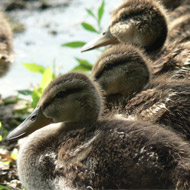H5N8 avian influenza detected in France

An outbreak of H5N8 bird flu has been detected on a duck farm in France.
An outbreak of H5N8 bird flu has been detected on a duck farm in France, the French Ministry of Agriculture reports.
The outbreak was confirmed on 1 December 2016 by the ANSES national reference laboratory in the Tarn region of Almayrac.
The farm reported a high mortality of ducks, which resulted in sampling at the beginning of the week. Of the 5,000 ducks on the farm, 2,000 are believed to have died.
The Department of Population Protection of the Tarn immediately put in place a protection zone of 3km and a surveillance zone of 10km around the farm. The ducks of the infected holding will be slaughtered.
The preventative slaughter of animals will also be carried out on farms linked epidemiologically to the detected outbreak. Enhanced surveillance will be established around these farms.
In a statement, the Ministry of Agriculture called for vigilance - particularly by vets, breeders, hunters and owners of poultry farms.
“This requires, in particular, the unfailing application of biosecurity measures and to report any mortality of birds,” they write.
The same virus was detected for the first time in France on November 27 on wild ducks in the Pas-de-Calais. Many cases have also been reported in Europe in recent weeks on migratory birds but also in poultry breeding.
The ministry adds that the role of migratory birds appears predominant in the spread of this virus, which is particularly contagious in birds but is harmless to humans.



 RCVS Knowledge has welcomed Professor Peter Cockcroft as editor-in-chief for Veterinary Evidence.
RCVS Knowledge has welcomed Professor Peter Cockcroft as editor-in-chief for Veterinary Evidence.